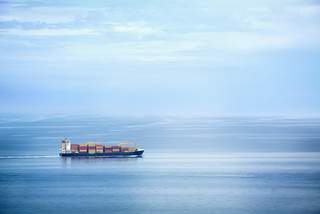
Internationaler Handel (c) Fotolia/pitrs
Settlement of Trade Disputes Despite Weakness in the WTO
The Appellate Body (AB) is enshrined in Article 17 of GATT 1994 and the WTO Dispute Settlement Understanding (DSU) contained therein. Since mid-December 2019, the AB has been unable to rule. As a result, the WTO can no longer issue final legal judgments. Particularly in a time of increasing protectionism and corona-induced weakness of the global economy, the inability to resolve trade disputes is a major burden on world trade.
Expansion of the EU’s Trade Policy Leeway
After more than 25 years of practice, the criticism of the WTO’s dispute settlement mechanism is justified on some points. The EU is therefore committed to reforming the WTO, including its dispute settlement pillar, in order to keep the multilateral trading system operational (The EU – Multilateralist by Conviction).
Extending the EU’s Trade Policy Scope
In December 2019, the European Commission proposed amendments to the Enforcement Regulation 654/2014 to the European Parliament and the Council of the European Union in order to ensure the EU’s ability to act even without final jurisdiction by the WTO. This regulation defines the measures the EU can take in case of violations of the international trading order. For example, it stipulates that tariff preferences may be withdrawn in case of violations of international trade law and that new and higher tariffs may be imposed “to restore the balance of concessions.”
In October 2020, the European Council and the European Parliament came to agreement on amendments to the Enforcement Regulation. The regulation’s scope of application was extended. Currently, the EU is able to apply countermeasures at the end of dispute settlement procedures, in the form of customs duties, quantitative restrictions on imports or exports of goods, and measures in the area of public procurement. Now, the scope has been extended to include countermeasures in the area of services and harmonised areas of intellectual property rights. This rule caters to the situation where (bilateral or multilateral) dispute settlement procedures are blocked and the other party would appeal a WTO panel report, which cannot move forward, and would also not agree to interim appeal arbitration.
Responding to U.S. Criticisms
The U.S. blockade of the Appellate Body is related to several critiques they hold of the judges and their practices. The EU, however, has been proactive in trying to reach out to the U.S. by addressing their critiques. In the new trade policy strategy, the European Commission sets out a number of principles on the dispute settlement function:
- AB judges are not bound by precedent, but should keep in mind previous rulings that could be relevant to the current case;
- The role of the AB should be strictly limited to addressing legal issues raised on appeal;
- Timelines should be strictly respected at all stages of disputes;
- Reform of the DSM should maintain the negative consensus rule, the independence of the AB and the central role of the dispute settlement pillar in the multilateral system.
In late 2018, the EU submitted, together with 11 other WTO members, a reform proposal, recommending, among others:
- New rules for retiring AB members, clarifying for which cases they are allowed to conclude proceedings;
- Guaranteeing a 90-day deadline for the conclusion of AB proceedings;
- Clarifying the demarcation of responsibilities in relation to national legislation;
- A uniform term of office for AB members of 6-8 years;
- Increasing the number of AB members to support the efficiency of the body.
Dispute Settlement by a “Coalition of the Willing”
In addition to these intra-European reforms, the European Commission agreed with several trading partners on a common interim approach to resolving trade disputes. With Norway and Canada, the EU reached agreements already in 2019 to bilaterally replace the Appellate Body. In late March 2020, these two agreements resulted in the Multi-Party Interim Appeal Arbitration Agreement (MPIA). This applies initially to the EU and 22 other countries (Australia, Benin, Brazil, Canada, Chile, China, Chinese Taipei, Colombia, Costa Rica, Ecuador, Guatemala, Hong Kong, Iceland, Mexico, Montenegro, New Zealand, Nicaragua, Norway, Pakistan, Switzerland, Singapore, Ukraine and Uruguay), but is open to all interested states. Since August 2020, ten arbitrators have been appointed to hear appeals against WTO panel reports at the MPIA. The Agreement will only replace the Appellate Body in dispute settlement until a multilateral solution is found under the umbrella of the WTO.
German industry regrets that the WTO Member states have not succeeded in agreeing on a constructive reform of the dispute settlement mechanism. The great successes of multilateralism in stabilising world trade, creating prosperity, and ensuring security of supply have suffered a severe setback as a result. The EU’s action is therefore expressly welcomed.



